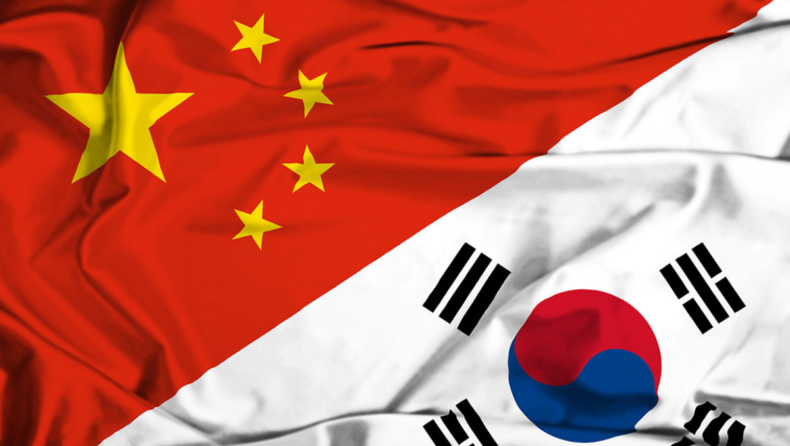On Wednesday, China and South Korea clashed over an anti-ballistic defence system. The system has been a point of contention for both countries since 2017
After the meeting between South Korea’s foreign minister, Park Jīn and his Chinese counterpart, Wang Yi apparently without a hitch, China expressed its concern over Seoul’s defence system. The American-made Terminal High Altitude Area Defense or THAAD is integral to South Korea’s defence against North Korean missiles. However, China claims that it can peer into its airspace.
South Korea’s THAAD system

The tension between the two countries reached its peak when China called for South Korea to revert to the foreign policy that its previous administration brought. China claims that THAAD’s powerful radar could peer into its airspace. It expressed its concern by reiterating China’s stance on the matter and underlined its “strategic security interests.” Wang said, “The two foreign ministers had another in-depth exchange of views on the THAAD issue, making clear their respective positions and enhancing mutual understanding”. He further added, “attach importance to each other’s legitimate concerns and to continue to handle and control the issue prudently” so that it can be stopped from becoming a “stumbling stone” in bilateral relations.
This is not the first time that THAAD became a concern for China. Back in 2016, when Seoul installed the system for the first time, it soured its relations with China. The deployment’s aim is to keep a check on North Korea’s nuclear arsenal. China is apprehensive that the security measure is meant to undermine its safety. As a result, the bilateral relations between Bejing and Seoul took a hit.

Now that there has been a government change in South Korea, things can get worse. Korea’s previous president Moon Jae-In was a liberal and his approach was to improve ties with North Korea. He pledged the ‘Three Nos’ policy pledged that Seoul would not deploy any more batteries of the THAAD system. Apart from that, it also assured China that Seoul will not be part of any missile defence networks with Washington or form a trilateral alliance with Japan and the U.S. Its current president, Yoon Suk-yeol is a conservative and believes in deepening relations with Washington. Presently, China is still calling for the ‘Three Nos’ policy and ‘one limit’- which involves limiting the use of the existing THAAD battery.
Seoul’s response
The South Korean foreign ministry stated, “During the meeting, both sides confirmed their differences over the THAAD matter, but also agreed that the issue should not become an obstacle that influences relations between the countries”. The ministry also said that the THAAD system is non-negotiable and ‘Three Nos’ were never a formal promise. The South Korean side is adamant about its stance and it is showing no signs of backing down anytime soon. Defence Minister Lee Jong-sup, reaffirmed Seoul’s position “The current battery is not structured to play any role in U.S. defences but placed in a location where it can only defend the Korean peninsula”.
Recent developments have made one thing clear; South Korea is moving closer to America. With everything that is happening in the South China Sea, there is a clear pattern of political escalation. China is always at the centre of it. Its Increased military action off Taiwan’s coast and Nancy Pelosi’s recent visit have done nothing to make matters any easier. The hitch between already sour relations has shifted the balance of powers. In the coming days, they are very likely to get worse.
Read more- Taiwan visit irks China, Pelosi to face sanction













